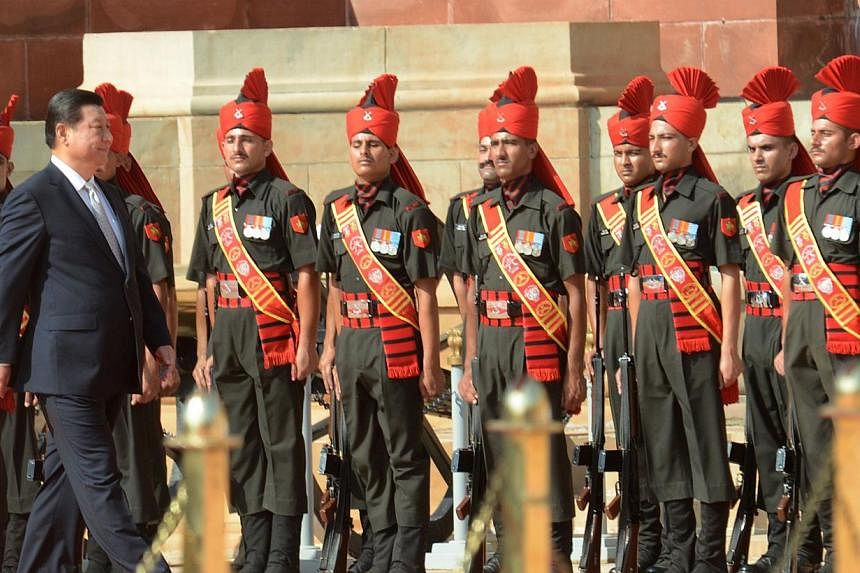This article was first published on Sept 19, 2014
India and China have an opportunity to start a "new era in relations", Prime Minister Narendra Modi said after talks with visiting Chinese President Xi Jinping, as he pushed for an early settlement of the border issue.
Both sides signed 13 agreements yesterday, including one under which Beijing will pump US$20 billion (S$25 billion) into Indian infrastructure over five years, but their unresolved border issue remained high on the agenda.
In a joint press conference with Mr Xi after talks, Mr Modi said border incidents involving their armies were a matter of concern even as he acknowledged the importance of boosting economic ties between Asia's fastest-growing economies.
"I raised our serious concern over repeated incidents along the border. We agreed that peace and tranquillity in the border region constitutes an essential foundation for mutual trust and confidence and for realising the full potential of our relationship," he said.
The Prime Minister asked the Chinese side to resume the work of clarifying the Line of Actual Control, or the de facto border, a process involving the exchange of maps that had stalled since 2002.
Mr Xi replied that China had the "determination to work with India to settle the boundary issue".
Since the two countries went to war in 1962, not a single shot has been fired along their border in years. However, military stand-offs occur often.
The Chinese leader's three-day visit coincided with an ongoing dispute in an area that India considers to be its territory in Ladakh in the western Himalayas. Indian media reports said Chinese troops had crossed into Indian territory recently and built a road there. This was later demolished by Indian troops.
Mr Xi yesterday noted that incidents did happen along the border.
"Since the border is yet to be demarcated, sometimes there might be certain incidents… but both sides are fully capable of acting promptly and managing the situation so that such incidents don't have a large impact on bilateral relations," he said.
China is India's largest trading partner with bilateral trade surpassing US$65 billion.
The two countries' trade and economic cooperation looks set to increase further. Mr Modi wants to push economic growth and develop infrastructure in his country apart from trying to narrow a trade deficit that is heavily tilted in China's favour.
China has pledged to invest in infrastructure, including building a high speed rail link between the southern cities of Chennai and Mysore and upgrading railway stations. It is also set to build an industrial park in western Gujarat state which will focus on manufacturing power transmission equipment, and a second one in Maharastra state for manufacturing auto parts.
The two sides also agreed to cooperate in space exploration and initiate talks on civilian nuclear cooperation apart from China giving more market access to Indian pharmaceuticals and farm products.
"I am pleased with the agreements on two Chinese industrial parks in India and a commitment to realise about US$20 billion of Chinese investments in the next five years. This opens a new chapter in our economic relations," said Mr Modi.
Said Mr Xi: "We (India and China) are emerging markets and should strive to achieve peaceful development."

